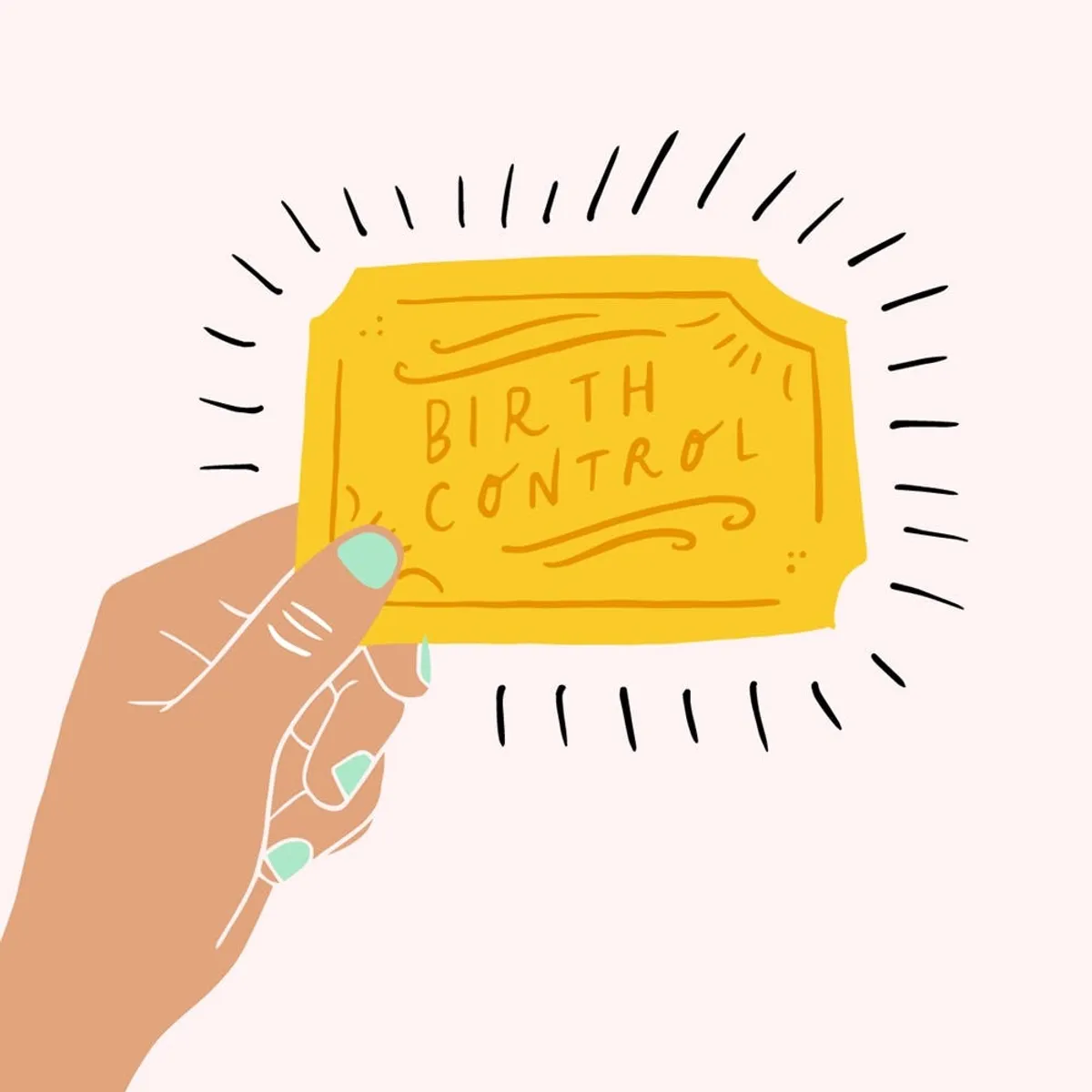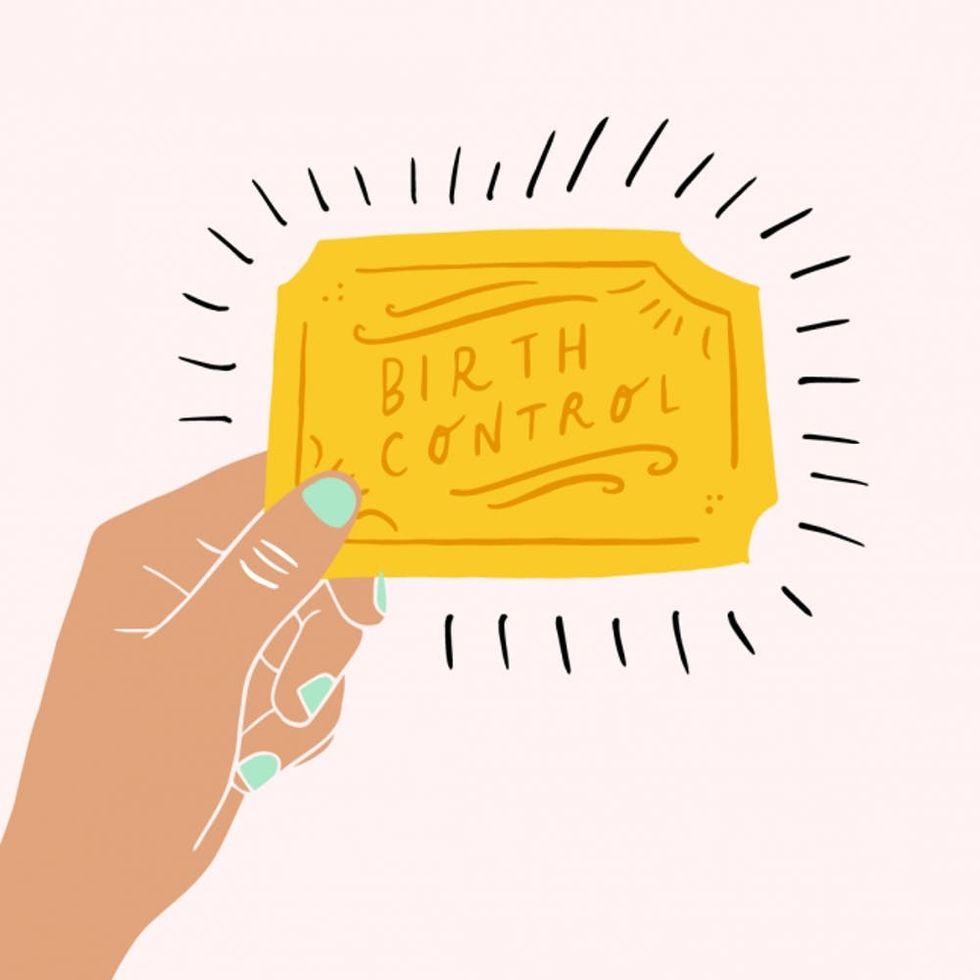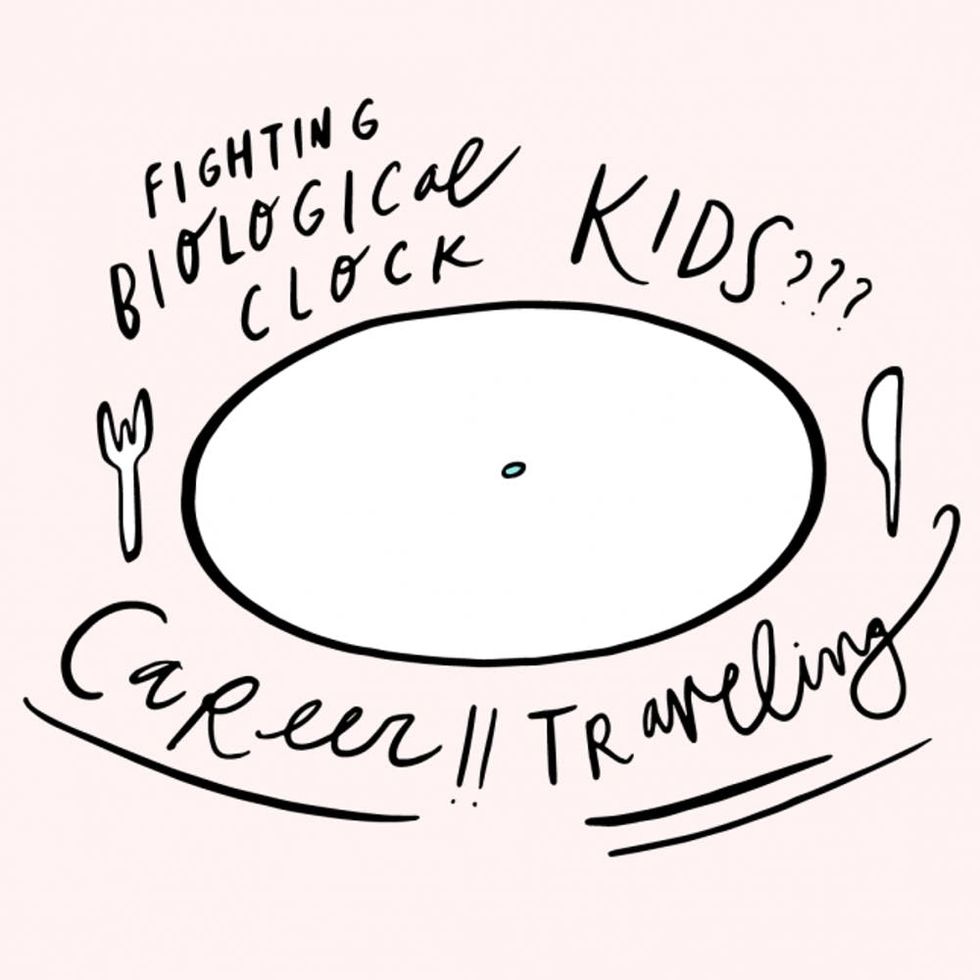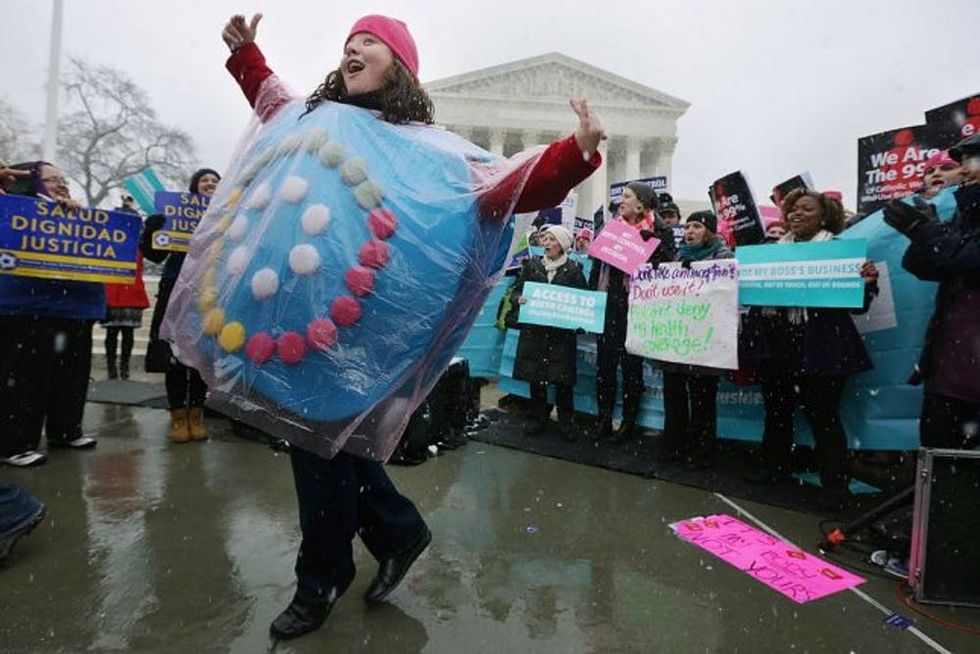How the Birth Control Pill Forced Me to Confront My Fear

A massive rush of beeps follows one after another as the clock strikes 8am. My alarm drones on and on alerting me that it’s time. I reach into my purse absentmindedly as I continue to scroll through my newsfeed on my phone. I feel the edge of the blue, plastic packet and pop my daily pill into my mouth.
My daily birth control pill may sometimes feel like a menial task on my to-do list, but it has provided a breadth of freedom that I wouldn’t want to give up. It’s a freedom, that until recently, I took for granted.

I started taking my trusty blue-hued pills when I was 18 years old. I had embarked on my college journey and decided to consult my doctor about birth control during my yearly physical.
It was a decision I had contemplated for months. For me, birth control answered a lot of unknowns. As a teen who suffered from irregular periods, it was a logical health-related option. But growing up in a small religious community, I was taught in school that birth control was an “unnecessary evil” and that abstinence was the answer to curing the “epidemic” of teenage pregnancy.
In college, my eyes were opened to the benefits of birth control. After having my period sync with nearly every girl on my floor, I was frustrated and overwhelmed by something that was deemed so natural but was treated as taboo. I wanted to be able to leave my dorm room without worrying about whether I would unexpectedly get my period. I wanted to feel normal and not ashamed of something nearly every woman experiences.
I felt like a winner of a golden ticket when I was handed the birth control prescription. I would no longer have to guess when Aunt Flow would decide to visit or deal with unnecessary acne and mood swings.
I was sold on the idea. The problem was convincing my church-going, traditional father that it was a good idea. He was still the boss of our family’s health insurance plan — would not allow me to use our insurance to pay for it.
I fidgeted at the kitchen table, waiting for him to come home from lunch and hear the verdict on my impulsive plan. My pulse quickened as I heard his heavy snow boots clomp up the front door steps and the door wheeze open as the bitter winter air rushed into the entry way. Dad acknowledged me with a nod and peeled off his winter jacket; “How was your doctor’s appointment?” he asked.
“Uncomfortable,” I blurted, followed by, “Could you pick up my birth control prescription later?”
My stomach dropped. That was now how I rehearsed telling my dad that his daughter was now taking birth control. I had mentally prepared an oral presentation in my head dictating the facts, citing research and quoting doctor testimonials that birth control could, in fact, be helpful for women. All my logical arguments flew like a flock of birds out the window. There I sat with just the simple fact that I wanted birth control, with no reason or explanation why.
He paused briefly and looked up to see if he heard me right.
I prepared for the worst.

Without any further discussion on the topic, he nodded and said, “Sure.” He asked if the family doctor had talked about the prescription in detail with me. My nod was apparently sufficient because he then changed the subject to when I needed to head to the dentist.
All of the scenarios I had concocted — my dad throwing his hands in the air or yelling toward the heavens in rage — all flitted away. I had mentally prepared myself to sign a peace treaty so that my father wouldn’t disown me and start World War III. I was stunned that he expressed no opinion on whether I used birth control or not. He only cared if I was educated on my decision.
That’s when it hit me; even though I was raised a Christian and taught to believe that sexual desires and anything that “assists” them is wrong, my parents also raised me as a feminist.
Though we never talked about birth control explicitly, my parents had fostered my independence. I dictated what happened in my life and what kind of a person I would be. As a child, I was never forced to play with dolls or urged to follow gender constructs. My parents laughed when I told them once, in frustration, that I was smarter and faster than most of the boys in my class; they added that I shouldn’t be ashamed of that fact. I was raised to rule my own kingdom and do so in a fashion that I saw fit. My right to decide also applied to what I did with my body.

Years later, my dad and I talked about the birth control incident again. I asked him why he hadn’t lectured me about my decision or offered some parental advice, which seemed to be his favorite pastime.
He laughed and said, “It’s your choice, and besides, I knew I couldn’t change your mind.”
When I woke up today, I paid a little more attention as I swallowed my birth control pill. I was fortunate enough to be raised in a household where I was told my opinion mattered, regardless of what gender I was.
Now that lesson has become the foundation of my beliefs. I believe in gender equality. I believe everyone has the right to decide what shapes and impacts their own lives.
It’s the little things, like having access to birth control, that help me understand the magnitude of what I can do as a woman. I can “fight” my biological clock and hold off on having children, or not have them at all. I can spend more time focusing on my career and traveling. I do not have to conform to gender expectations that don’t suit me personally. My life is my own manuscript and no one else is the author. I dictate my own future, and sometimes that reminder comes packaged in a tiny, daily pill.
(Illustrations via Marisa Kumtong/ Brit + Co. Photos via BruceBlaus/Creative Commons; Chip Somodevilla / Getty)



















